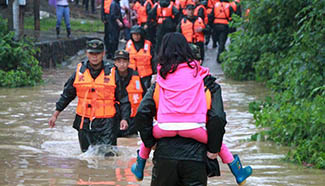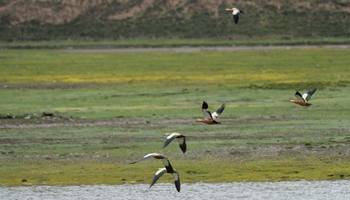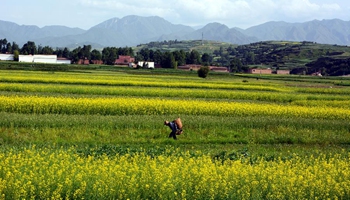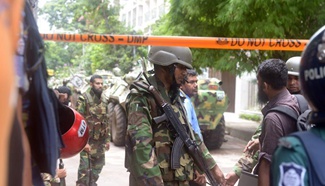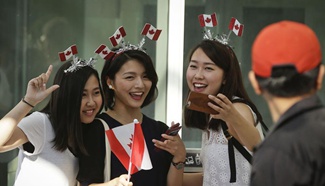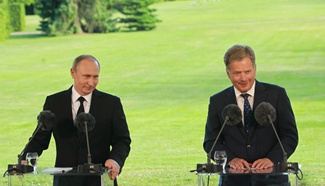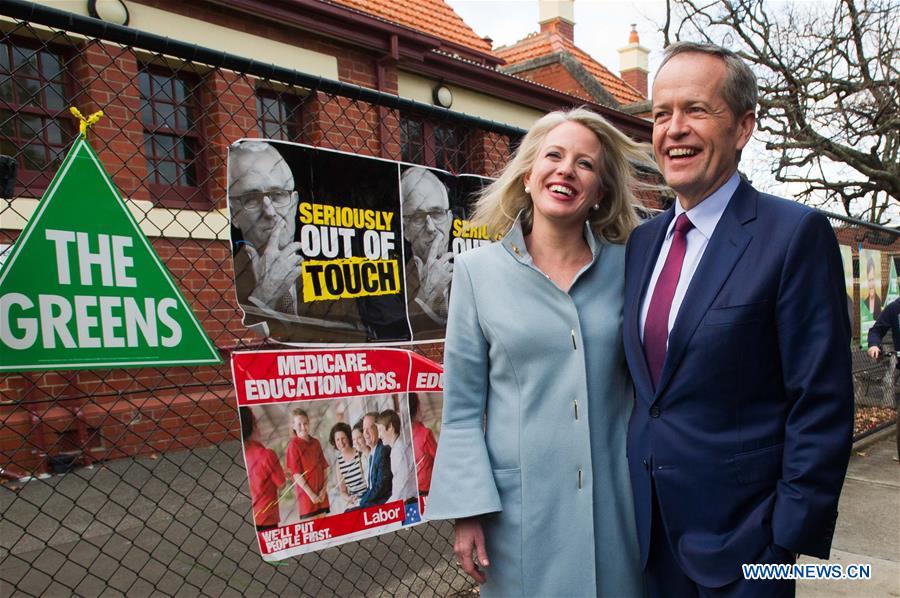
MELBOURNE, July 2, 2016 (Xinhua) -- Leader of the Australian Labor Party Bill Shorten and his wife Chloe Shorten arrive at the Moonee Ponds West Public School polling station to cast their votes in Melbourne, Australia, July 2, 2016, on Australia's federal election day. (Xinhua/Bai Xue)
by Matt Goss
CANBERRA, July 2 (Xinhua) -- Leaders of both major Australian political parties have continued their campaigns in the marginal seats that were expected to determine the election result.
Prime Minister Malcolm Turnbull, leader of the center-right Liberal-National Coalition, and leader of the center-left Labor Party Bill Shorten made last ditch attempts to get their party over the line in Saturday's federal election.
Despite telling the travelling media pack that his campaign was over after voting at a school in his electorate on Saturday morning, Turnbull made appearances at voting centers in marginal electorates on Saturday afternoon.
Meanwhile Shorten spent all morning in Western Sydney before flying to his own seat of Maribyrnong in Melbourne's northwest to cast his own vote and conclude his campaign.
Shorten first had to deal with one of the long queues which have plagued election day with voters at centers in inner-Melbourne reportedly facing lines up to two hours to cast their ballot.
"Labor has worked on a policy agenda for the Australian people. We are ready to govern, we are ready to implement our policy agenda for the Australian people, and we are ready to serve," Shorten said on Saturday morning.
A two-party opinion poll conducted by News Limited in the week leading up to the election gave the coalition a slight 50.5 percent advantage to Labor's 49.5 percent.
Foreign Affairs Minister Julie Bishop used her last appearance of the campaign to implore independent members of the new parliament and those from small parties to respect the will of the Australian people if the Turnbull government is re-elected.
"The coalition, if we win, will have the support of the Australian people to implement the very positive economic plan that will underpin the future of this country," she told reporters in her Perth seat of Curtin after voting.
"The Australian people are making a very serious decision today about the future of our country and I hope the crossbenchers, I hope the independents, I hope the Greens and every other major party listen to the will of the Australian people."
Turnbull triggered an election of all 226 seats of Australian parliament following increasing frustration with crossbenchers in the Senate repeatedly blocking coalition legislation.
Turnbull's decision to call an early election to secure a coalition majority in both houses looks likely to backfire, however, with the size of the crossbench in the House of Representatives and the Senate set to increase.
South Australian senator Nick Xenophon, leader of the recently-formed Nick Xenophon Team (NXT), is shaping as one of the election's major winners with the minor party looking to win multiple seats across both houses of parliament.
NXT will be joined on the crossbench in both houses by the Greens who are optimistic of adding to their current tally of one seat in the House of Representatives via the Melbourne electorates of Wills, Batman and Higgins.
The tight contest between coalition incumbent Kelly O'Dwyer and Greens hopeful Jason Ball in Higgins escalated on Friday night with Fairfax Media reporting that an unknown man bit a Greens volunteer in the area.
While the majority of coalition ministers and prospective Labor ministers face stress-free victories in their own seats, Turnbull's deputy Prime Minister and leader of the National Party Barnaby Joyce is facing stiff competition from independent candidate Tony Windsor.
"This campaign I think is going to be tight. I've never thought otherwise. I've always believed these campaigns go down to the wire," Joyce said.
"If I get given the great honor of representing the people of New England I will continue on in that role."
With both major parties sharing many policy platforms, proposed reforms by the coalition to Medicare, Australia's universal healthcare scheme, has become the centerpiece for the final day of the election.
Under the proposition the coalition would freeze rebates paid to doctors until 2020 which could in turn force medical practitioners to increase their prices, prompting fears that the elderly and young families will face considerably more money out of pocket.
"If they (voters) want Medicare that's strong, vote Labor," Shorten's deputy leader Tanya Plibersek told reporters after voting in her electorate of Sydney.
"If we happen to win today after all our hard work after putting out our 100 positive policies it'll be a sweet victory indeed."
Voting booths close at 6 p.m. local time with the counting of ballots to begin immediately afterwards.




